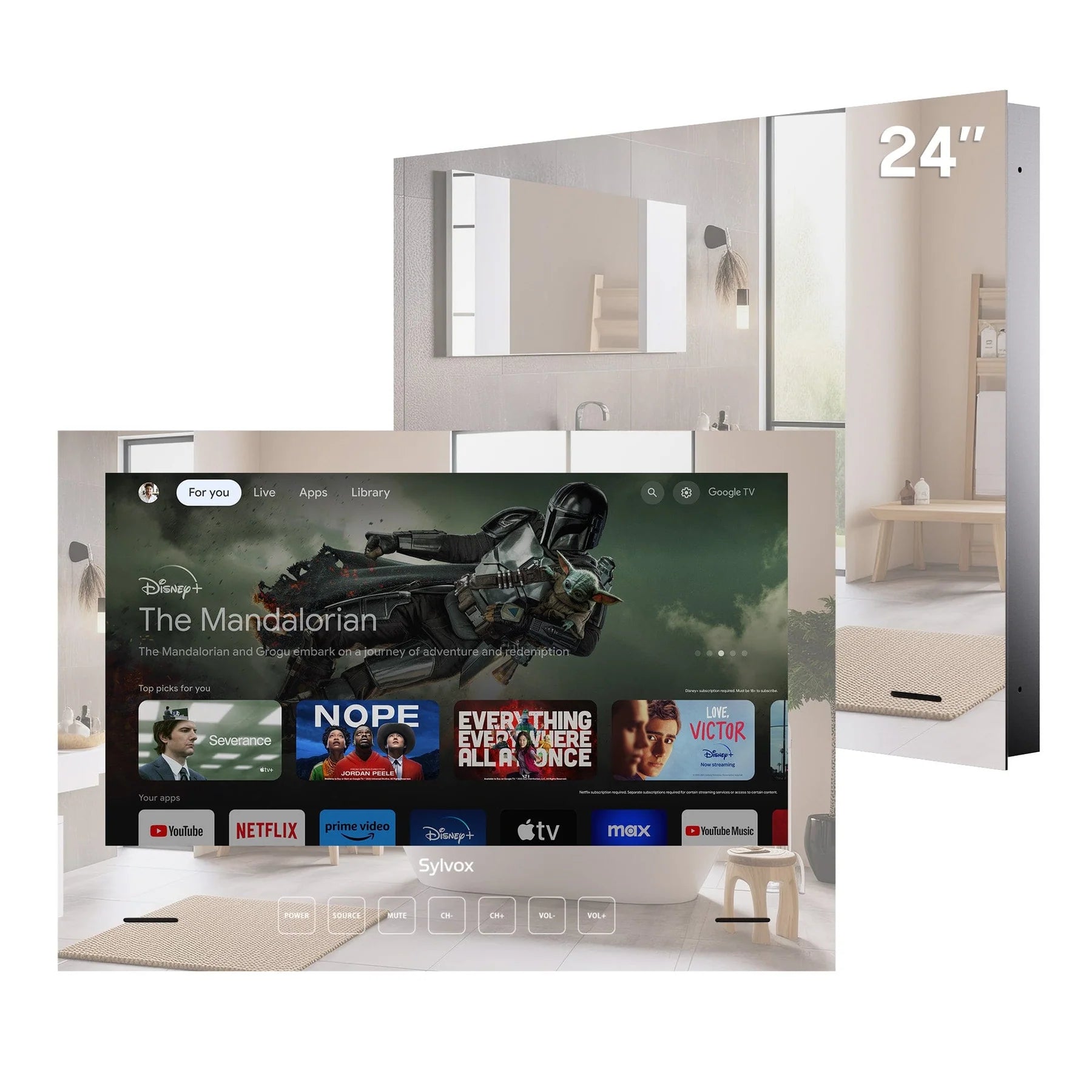Can You Use a Car Battery to Power an RV TV?
Using a car battery to power a 12V RV TV is feasible. However, efficiently powering an RV TV with a car battery requires careful consideration. But don't worry, we'll address your concerns through this article.

Understanding the Power Requirements of an RV
The power requirements of an RV are crucial, especially when using appliances such as a TV for RV. RV TVs share similarities with standard household TVs in power requirements, but there are specific differences. Most 12-volt TVs for RVs are designed to operate on 12V DC or 120V AC power, allowing them to function properly in different power supply environments. Generally, RV TV power consumption ranges from 20 to 60 watts. For instance, a 24-inch LED TV typically consumes around 36 watts of power. If this TV utilizes a 12V DC power source, the required current is approximately 3 amps. This design enables RV TVs to operate efficiently under limited power supply, ensuring entertainment needs are met during travels.

Fundamentals of Car Batteries
Standard car batteries provide 12V DC power, with capacities typically ranging from 45 to 75 amp-hours (Ah). Unlike deep-cycle batteries designed for continuous discharge and recharge cycles, car batteries are optimized to deliver short bursts of high current required for engine starting. Frequent deep discharges can significantly reduce their lifespan and efficiency.
Powering an RV TV with a Car Battery
Challenges of Direct Connection
Voltage Stability: Car batteries may experience significant voltage drops under load or when the engine is off, affecting the performance of RV TVs.
Inverter Requirements: For 12V RV TVs requiring 120V AC power, an inverter is needed to convert 12V DC power to 120V AC. Inverters come primarily in two types:
Pure sine wave inverters: Provide clean power similar to household outlets, suitable for sensitive electronic devices.
Modified sine wave inverters: Cost less but may cause issues with certain electronic devices due to less refined power output.
Example: To determine if a car battery can power an RV TV, consider a 50Ah car battery and a 36W 12V RV TV. The TV consumes 3 amps of current per hour (36W / 12V = 3A). Theoretically, the battery can power the TV for approximately 16 hours (50Ah / 3A = 16.6 hours). However, discharging the car battery below 50% capacity can lead to permanent damage, so the actual usable time is approximately 8 hours.
Pros and Cons of Using a Car Battery
Advantages:
Availability: Car batteries are readily available and can serve as a temporary power solution.
Cost-Effective: They offer a lower initial cost compared to specialized RV batteries.
Disadvantages:
Limited Capacity: Car batteries are not designed for deep discharge cycles, limiting their effectiveness for prolonged use.
Potential Damage: Improper management can damage both the battery and the electronic devices connected to it.
Enhancing Battery Performance
Tips to Extend Battery Life:
Regular Maintenance: Periodically check the electrolyte level of lead-acid batteries and clean terminals to prevent corrosion.
Solar Charging: Utilizing solar panels to charge the battery can prolong its lifespan and provide sustainable power.
Energy-Efficient Appliances: Opt for LED TVs and other energy-efficient appliances to reduce power consumption and extend battery life.
Conclusion
Using a car battery to power a 12V RV TV is feasible but comes with limitations and risks. For extended travels or frequent use, investing in deep-cycle batteries or portable power stations is recommended. Understanding your power requirements and properly managing the battery can ensure a seamless and enjoyable RV TV experience.






Laissez un commentaire